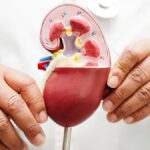Stomach flu, also known as gastroenteritis, is a common condition that affects millions of people each year. It is a viral or bacterial infection that causes inflammation of the digestive system and mainly affects the stomach and intestines. In this article, we will discuss the main causes and symptoms of stomach flu, as well as the treatments available to relieve this condition.

Causes and risk factors for stomach flu
Viral infections are the most common cause of stomach flu. Viruses that cause stomach flu include rotavirus (more common in children), and norovirus (in adults). However, certain bacterial infections such as Salmonella, Shigella, Campylobacter and Escherichia coli can also cause stomach flu.
Risk Factors
Close contact with someone who has the stomach flu
Handling food contaminated with the virus or bacteria
Traveling to a country where drinking water is not safe
Being immunocompromised, such as the elderly, young children or those with chronic illness
Symptoms of stomach flu
Symptoms of stomach flu vary depending on the infectious agent responsible and can be different from person to person. The main symptoms include:
Digestive signs
Diarrhea: Frequent and sometimes painful, often accompanied by urgency and abdominal cramps.
Vomiting: caused by stomach irritation and persistent nausea
Abdominal pain and discomfort: caused by muscle spasms and inflammation of the digestive system.
Read: CPD Health Training: An Essential Part of Continuing Medical Education
Other common symptoms
General fatigue and muscle weakness
Headaches and dizziness
Loss of appetite and dehydration
Moderate fever (in some cases)
Symptoms of stomach flu usually appear quickly and last anywhere from 24 hours to a week depending on the severity of the infection. It is essential to seek medical attention if symptoms persist or worsen.
Treatment and prevention of stomach flu
Treatment of stomach flu is based primarily on managing symptoms and maintaining proper hydration. In some cases, specific treatment against the virus or bacteria responsible may be prescribed.
Treatment of symptoms
Rehydration: drink water, clear liquids (such as broth) or electrolyte drinks to replace water and salt lost through diarrhea and vomiting.
Light diet: eat easily digestible foods such as rice, bananas, toast and fat-free baked potatoes
Over-the-counter medications: take anti-diarrheal medications (such as loperamide) or antiemetics (such as metoclopramide) to relieve symptoms. It is important to follow your pharmacist’s or doctor’s recommendations regarding these medications.
Specific treatment
In some situations, specific treatment against the infectious agent may be necessary:
Antibiotics: only if the stomach flu is caused by a proven bacterial infection (e.g. Salmonella, Shigella).
Antivirals: in rare cases, a doctor may prescribe a specific antiviral (such as nitazoxanide) to treat a severe viral infection.
Read: Understanding the impact of elevated CPK on fatigue
Preventing the Stomach Flu
Prevention of stomach flu relies on good hygiene and some simple actions:
Washing hands regularly with soap, especially before eating, after using the bathroom and after touching potentially contaminated surfaces.
Cook food properly, especially meat and fish, to avoid bacterial infections.
Regularly clean kitchen surfaces and utensils to eliminate germs and reduce the risk of cross-contamination.
Travel cautiously to countries where drinking water is not safe and learn about measures to avoid contracting stomach flu during your stay.
In conclusion, although the stomach flu is a common and generally benign condition, it is important to know its causes, symptoms and available treatments to deal with it effectively. Good hygiene and preventive measures are also essential to reduce the risk of infection and protect your health and that of those around you.

Gina Jordan is a health blog author who has been writing about healthy living since 2013. She started her journey by adopting a vegan diet and eating only organic foods, but the more she learned, the more she realized that we should all be eating plant-based diets exclusively. As an expert in nutrition and wellness, Gina blogs to educate readers on how they can live happier and healthier lives through food choices!












